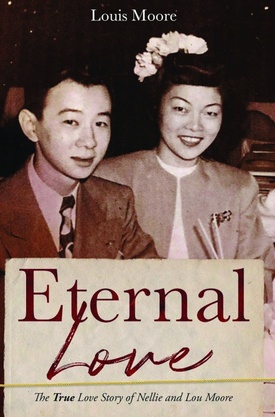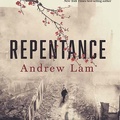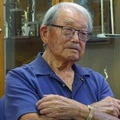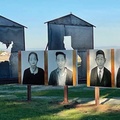The love Lou Moore had for his wife Nellie lasted beyond 74 years and overcame as true love will, obstacles including imprisonment in a concentration camp, war and the opposition of family members because of Nellie Moore’s Japanese heritage.
That love has continued unabated even with Nellie’s passing in October of 2020. His love for his wife led Lou Moore to write a book on their experiences together titled, Eternal Love: The True Love Story of Nellie and Lou Moore, available for purchase on Amazon.com.
Released on Nov. 30, 2020, the book has already received excellent reviews. It’s theme that true love conquers all has reduced readers who never met Lou Moore to tears.
“I wanted to express my love for my wife, a love that is as strong today as it was in the beginning,” Moore said. “This is my first published book. I wanted to say she (Nellie Moore) was the best that ever happened to me, to try and teach, especially men; a woman is a human being, who needs to be loved and cherished.”
The cover of the book shows Lou and Nellie Moore at a restaurant in New York on their first anniversary in 1947.
Lou Moore is a third-generation U.S. citizen of Chinese heritage born in San Francisco in 1922. His parents Louis and Evelyn worked as a cook and waitress at a Bay Area restaurant.
Aged 98, today Lou Moore lives in a retirement center in Lancaster.
Nellie Moore (maiden name Nellie Hatsumi Maeda), a Nisei (second generation) U.S. citizen, was born in Fresno in 1922 where her parents farmed vegetables. Her ancestors came from the Yokohama area of Japan.
Moore related how he came to have an Anglo-sounding last name though he was of Chinese heritage.
“When my grandfather came over to this country the immigration official could not pronounce his real Chinese name, so they gave him the name Moore,” Moore said. “The name served me well because on the phone in my business dealings people over the phone thought of me as an American.”
In 1942 the U.S. Government decided to lock up 120,000 mostly U.S. citizens of Japanese ancestry in barbed-wire-enclosed guarded concentration camps located in remote areas of the south and west. Nellie Maeda and her family were imprisoned in the Gila River Relocation Center camp in Arizona.
Lou served during World War II in the U.S. Air Force as a staff sergeant.
“Back in those days there was no separate Air Force,” Moore said. “It (Air Force) was part of the U.S. Army. I trained as a cadet pilot in an open cockpit airplane, but was involved in an accident and I had to quit. I became a jack of all trades, and got involved in providing security at air bases in England, France, and then Germany during the war from 1942 to 1946.”
Moore said he could recall the experience of England being bombed by German V-1 pilotless flying buzz bombs during the war in 1944, the world’s first cruise missile.
In 1946 with the end of the war Moore journeyed to New York and for an evening of entertainment visited the China Doll Night Club on 47th Street in Manhattan. There he saw Nellie Maeda, a dancer in a chorus line. She and her family had relocated to New York because of anti-Japanese feelings in California.
“They couldn’t return to the West Coast because the feelings were still very high,” Moore said. “She (Nellie) went to New York and got a job as a nanny for a rich family in Larchmont (New York).”
Moore said although Nellie had no experience in show business, she auditioned anyway.
“She had a lot of nerve,” he said. “The salary for dancers was $82 per week and the average salary then was $32 per week. She (Nellie) had wanted to return to California, but because of bad luck instead she met me and stayed in New York.”
Moore, in the audience at the club, said that from the moment he saw her he was smitten with Nellie.
“It was love at first sight,” he said. “I said, that’s the girl for me. She didn’t go after me, I went after her. I never looked at another show girl.”
On June 1, 1946 Moore asked Nellie Maeda for a date. On June 9, he proposed marriage. On June 10, the couple married, in Baltimore, Maryland.
“We went to Baltimore because in New York you had to wait a week to get married,” Moore said. “I loved her and she felt the same about me. We were a happy young couple.”
But difficulties arose. When the newlywed couple went to visit Lou Moore’s parents in New York —the reception was hostile.
“We were scared as hell meeting our parents,” Moore said. “Her (Nellie’s) family was accepting of it, but my mother and my family were not. They resented her because she was Japanese. We thought it would be the opposite, her family would be against me.”
Moore said his family members kicked he and his new bride out of their house. They would not speak to each other again for seven years.
Their first meeting with Nellie’s parents in Los Angeles was different.
“Her (Nellie’s) mother had a stern look. She didn’t know me, but then finally, she cracked a smile and hugged me,” Moore said.
Eventually, after seven married years Nellie asked Lou to call his family and try to patch things and break the ice.
“My parents finally accepted it (marriage), grudgingly,” Moore said.
Moore conceded he still has some bitterness over the episode, because he loved his wife so much.
“I had a bad feeling for what they (his family) did to my wife,” he said. “But she never complained. She took everything they threw at her. She took it with a smile.”
The couple moved to the Los Feliz section of Los Angeles where they would remain for 35 years. Moore worked as a business manager and a business consultant helping companies in trouble to realize profits and survive.
He recalled one phone call where his American sounding last name resulted in confusion.
“I was working for a Chinese company that was owned by the Chinese Government and my job was to assemble the proper papers so the company could pay its vendors,” Moore said. “The guy on the other end of the phone said, ‘You know Mister Moore how difficult it is to be working with these stupid Chinese.’ I told him, I happen to be Chinese. He just about died on the line, fell off his chair.”
The happiness Lou and Nellie enjoyed continued unabated until Nellie’s declining health in recent years.
“She was put into a nursing home six years ago, and it was unfair because she couldn’t understand what was happening,” Moore said. “She had dementia. I was at the nursing home every day and I needed care givers.”
Moore said with his wife’s passing last October from dementia, the loss is beyond calculation.
“You can’t imagine what it is to get up in the morning and have no one to say good morning to, or to say goodnight,” he said. “But I realized I really needed to tell the story. I wanted the world to know my Japanese American wife was the most beautiful and wonderful person in the world.”
Moore dictated his and Nellie’s story and it was typed into a computer by Stacey Alvey. The project began last July. During the writing there were times that Alvey cried.
“I think the story touched her (Alvey) as much as it would any woman,” Moore said.
Moore said the book’s completion was greatly aided by the work of Robin Blakely of Kansas City, an author and consultant with the Creative Center of America.
Unfortunately, Nellie Moore died shortly before the book’s publication. The book is 70 pages in length. It became available in hard copy three weeks ago.
Moore said he would like to speak to groups about the writing of the book, but those plans have been put on hold because of the COVID-19 pandemic.
The book was recently rated number one by Amazon in the category, “Japanese Biography.”
© John Sammon / NikkeiWest






